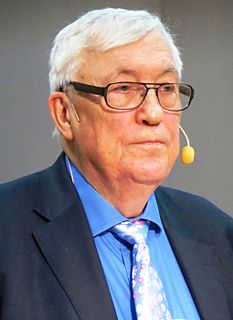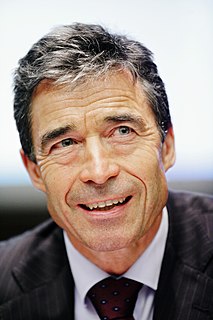A Quote by Martin Rees
I'm a technological optimist in that I do believe that technology will provide solutions that will allow the world in 2050 to support 9 billion people at an acceptable standard of living. But I'm a political pessimist in that I am concerned about whether the science will be appropriately applied.
Related Quotes
But I am an optimist about Britain; and the difference between an optimist and a pessimist is not that the optimist believes the world is wonderful and the pessimist believes it's beset by challenges; the difference is the pessimist believes we will be defeated by them; the optimist thinks the challenges can be overcome.
By 2050, seven out of ten people will live in cities, which will account for six billion people living in urban areas. That phenomenon is central to all the challenges humanity faces. If there is an issue to be addressed, then it is certainly happening in cities and therefore must be considered on an urban scale.
I am glad I am an optimist. The pessimist is half-licked before he starts. The optimist has won half the battle, the most important half that applies to himself, when he begins his approach to a subject with the proper mental attitude. The optimist may not understand, or if he understands he may not agree with, prevailing ideas; but he believes, yes, knows, that in the long run and in due course there will prevail whatever is right and best.
Science is rooted in the will to truth. With the will to truth it stands or falls. Lower the standard even slightly and science becomes diseased at the core. Not only science, but man. The will to truth, pure and unadulterated, is among the essential conditions of his existence; if the standard is compromised he easily becomes a kind of tragic caricature of himself.
I am pretty sure central banks will continue to print money, and the standards of living for people in the western world, not just in America, will continue to decline because the cost of living increases will exceed income. The cost of living will also go up because all kinds of taxes will increase.
I think the best and perhaps only sensible policy for the future is to prepare society for change and be prepared to adjust. In 25 years, we'll have a world with some 9 to 10 billion people that will require twice as much primary energy as today. We must embrace new science and technology in a more positive way than we presently do in Europe. This includes, for example, nuclear energy and genetic food production to provide the world what it urgently needs.
I will tell you what I will do and what I will not do. I will not serve that in which I no longer believe, whether it calls itself my home, my fatherland, or my church: and I will try to express myself in some mode of life or art as freely as I can and as wholly as I can, using for my defense the only arms I allow myself to use -- silence, exile, and cunning.
Will this massive outcry [about pollution] continue long enough to have effective results? Will federal and state laws be enacted with effective enforcement clauses? Will people be concerned long enough to pay the bill through higher prices? Will towns tole lost jobs when it proves too costly to clean obsolete plants?... I think so, but it sure won't be as easy as the present outcry and political oratory suggest. The answers to preserving a livable environment are not all simple, and some of the nuts now pushing simplistic cure-alls won't help bring about any lasting solutions.




































